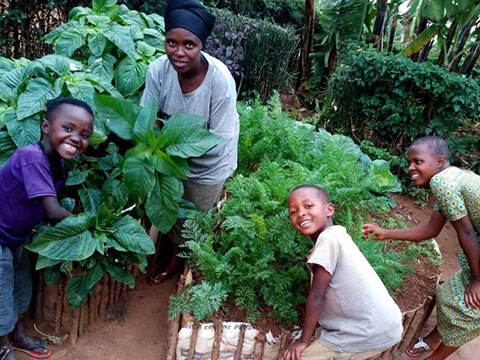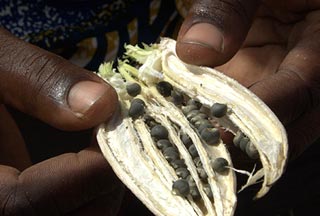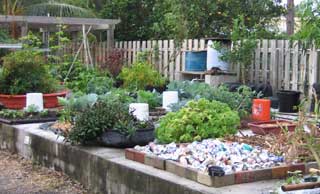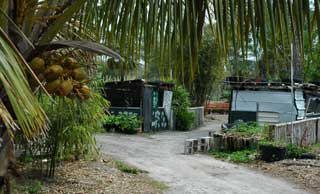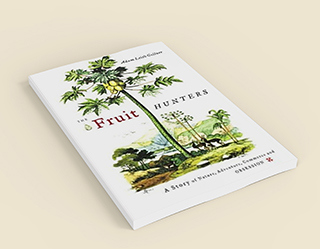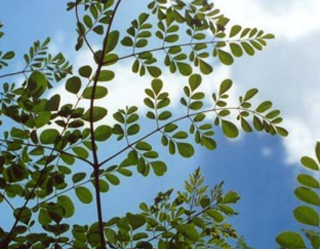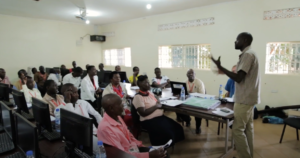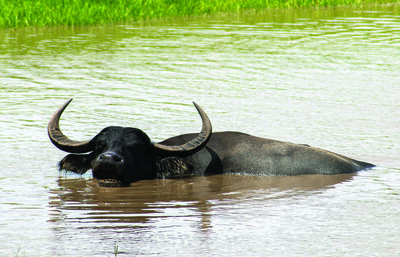
A farm in Southeast Asia lost its source of clean water and was able to implement ECHO’s four-barrel water filtration system made by hand.
By: Anna Pearson
When the neighbor’s buffalo invaded their rainwater catchment pond, Michael Brant, his wife Mindy, and their farm staff were out of clean water. Fortunately, Michael knew there was a solution – they were not out of luck.
Michael, who runs an organic farm in Laos, had first learned about the four-barrel water filter design while searching for low-cost filters on YouTube. Months later, Michael and Mindy were excited to find out they could make their own when they visited the ECHO Asia Small Farm Resource Center for a tropical agriculture course. They knew they needed it on their farm.
The four-barrel water filter system begins with a gravel pre-filter, then treats the water with a slow sand biofilter and then a biochar absorber before being stored in the final barrel. The bio-sand filters have a biological layer on top of the sand, and an aerobic and oxygen-loving layer to consume the bad microbes. This biological filtration keeps things like protozoa, cysts, and other organisms that cause sickness out of the water.
Originally developed by network partner Josh Kearns of Aqueous Solutions and identified by the team, biosand water filters are the most commonly used model. The four-barrel system adds an extra step to filter out chemical contaminants with the biochar barrel, which can absorb mercury, pesticides, acidic gasses, ozone, and nitrogen oxides out of the water.
According to the United Nations – which currently has 17 Sustainable Development Goal sit developed in 2015 and hopes to achieve globally by 2030 – 829,000 people die annually from diseases directly attributable to unsafe water, inadequate sanitation, and poor hygiene practices. Billions of people lack access to these basic services.
“You’ll get sick from drinking dirty water, illnesses like diarrhea — but you don’t notice the chronic long-term impacts of drinking contaminated water, which would be from those chemical contaminants you’re ingesting,” Elliot Toevs, ECHO’s Appropriate Technology Manager said. “You might not notice those impacts until 30 years later.”
Biochar filters are similar to the activated carbon filters that are used in common household items such as water pitcher filters or refrigerator filtration systems. Since this four-barrel system was introduced to ECHO in 2017, training on how to build it has picked up with the high demands for clean water solutions.
Although Michael was able to chase off the buffalo to another water source, he knew they would be back. The four other individuals living and working on the farm needed the water for household use as well as watering the garden and fruit trees. The end of the dry season in Laos meant low water levels full of sediment, which were stirred up by the buffalo, as well as the animals making the pond their personal bathroom.
“I was both disgusted and amazed at the same time,” Michael said. “These animals were simply doing what God designed them to do, but we were so dependent on this pond that I didn’t care how happy they seemed.”
In order to get a clean water source, they needed to dig a well. They decided to use the water filter system in the meantime. Michael finished the plumbing and built an elevated tank stand, finishing the project in three weeks — just enough time for the filter to help clean their water supply until the well was drilled. Their new filter cleaned the water and made it usable again.
Weeks later usable well water was found 37 meters down, and the Brant’s farm water was safe from the buffalo. The ECHO water filtration system continues to be used in addition to the well, filtering the well water for use at the farm. “The filtration system is a massive improvement for our farm,” Michael said. “It will serve us for years to come.”
The Brants hope to teach low-cost water filter designs outside of their farm and have gained confidence and hope from the tools and techniques they learned while at ECHO.
In addition to making their own biochar and water filter, Michael and Mindy have taught their farm employees how to make pesticide from tobacco and test germination using ECHO’s resources. They intend to start training in their local village to not only be an organic farm but also a resource for community outreach.
“Because of ECHO, we learned about building this four-barrel biochar water filter and what we can do here in our village,” Michael said. “We have the experience now.”
